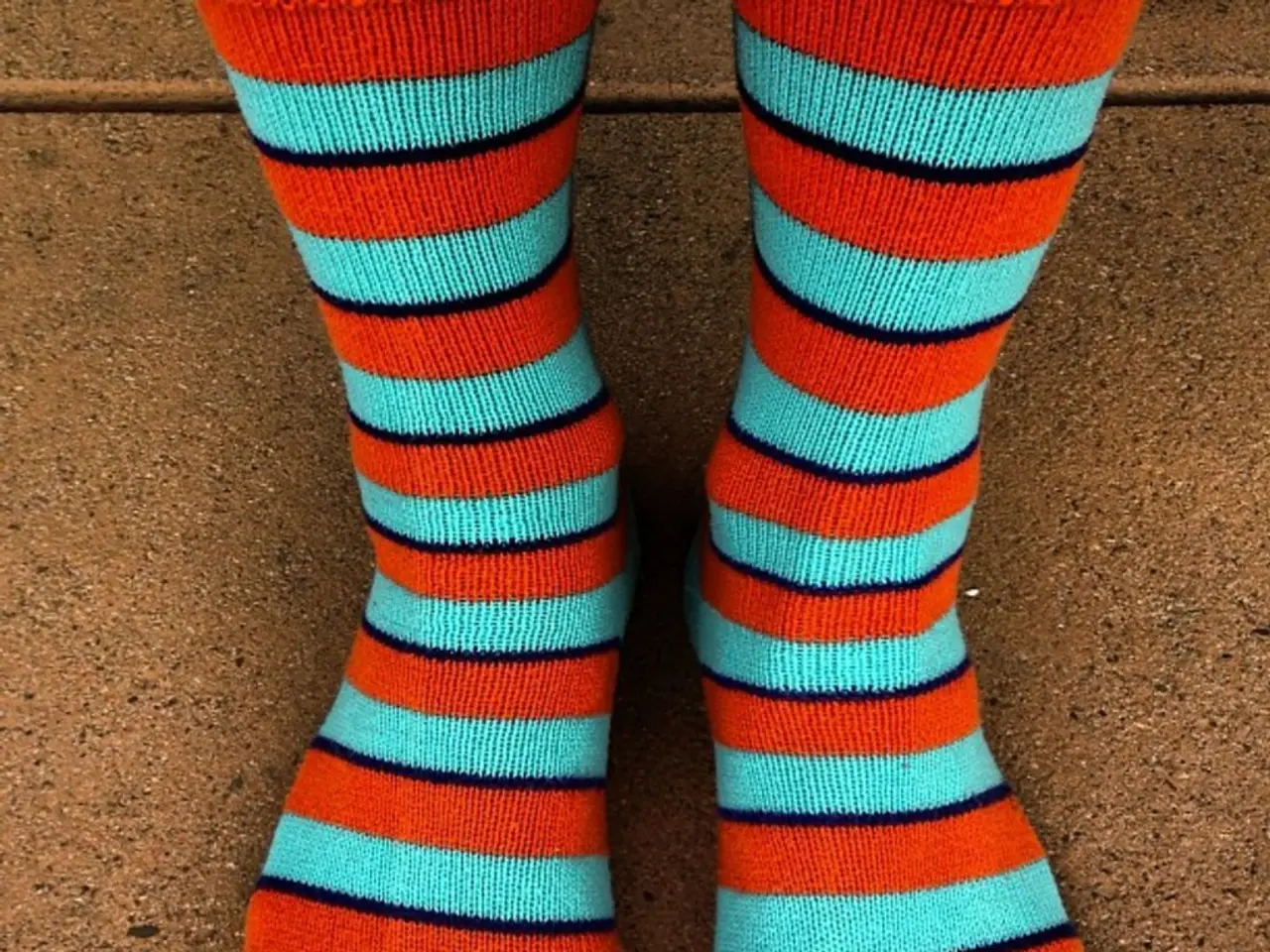Compressive leg wear for enlarged veins: Advantages and potential side effects
In the realm of managing varicose veins, compression stockings have emerged as a popular choice for many individuals. These specially designed garments offer symptomatic relief by enhancing venous circulation, reducing swelling, and alleviating discomfort such as aching and fatigue.
The scientific community firmly supports the benefits of compression stockings, particularly in improving circulation and reducing venous pressure. By applying graduated pressure, strongest at the ankle and gradually lessening upwards, compression stockings aid in increasing blood flow back to the heart, thereby preventing blood pooling and subsequent swelling.
Clinical studies also demonstrate that compression stockings effectively decrease leg swelling in patients with chronic venous disease or varicose veins. This, in turn, leads to improved comfort and leg appearance. Furthermore, patients report less leg pain, ache, heaviness, and fatigue when wearing compression stockings consistently.
Beyond symptom relief, compression stockings may also play a role in preventing complications. By promoting better venous return, they can help reduce the risk of venous stasis dermatitis, skin changes, and potentially blood clots like deep vein thrombosis (DVT) in susceptible individuals.
However, it is crucial to understand that compression stockings do not treat the root cause of varicose veins, which is venous reflux or valve dysfunction. Definitive treatments like Endovenous Ablation (laser or radiofrequency closure of veins) are needed for correction. Some guidelines caution against using compression stockings solely as a prerequisite to definitive treatments because there is no high-quality evidence mandating this step.
Moreover, wearing compression stockings can sometimes cause discomfort or skin irritation, leading to poor adherence. It is essential to choose the right size and type of stocking, ensuring it is not wrinkled or worn incorrectly. The right amount of pressure depends on the number, type, and underlying cause of a person's varicose veins.
In conclusion, compression stockings are a valuable tool in managing varicose veins, providing symptomatic relief and improving circulation. However, they should not be viewed as a cure but rather as a management strategy. Proper use and patient adherence are key to maximizing benefits while minimizing risks. As always, consult with a healthcare professional for personalised advice and treatment options.
- In the realm of health-and-wellness, science has recognized the benefits of managing chronic diseases like Alzheimer's, depression, asthma, psoriatic arthritis, and HIV, among others, through various means.
- Managing obesity, for instance, often involves a combination of fitness-and-exercise, nutrition, and medical-conditions treatments.
- In the case of psoriatic arthritis, medications may be prescribed to reduce inflammation and alleviate symptoms.
- For Alzheimer's patients, predictive measures and early diagnosis can help manage symptoms and plan care.
- PSA tests are often used to screen for prostate cancer, another chronic disease.
- Migraines, another common medical condition, can be managed through a variety of treatments, including medications, lifestyle changes, and therapeutic techniques.
- Hepatitis, a liver disease, can be treated with antiviral medication and vaccines for prevention.
- Ra (rheumatoid arthritis) is managed with a combination of medication, physical therapy, and lifestyle changes to reduce pain and inflammation.
- Compression stockings, while not curing the root cause, can help manage symptoms and prevent complications for those with chronic venous diseases like varicose veins.
- It's important to note that not all individuals respond equally to these treatments, and adherence to the prescribed regimen is crucial for effective management.
- Always consult with a healthcare professional for personalized advice and treatment options when managing any medical conditions, whether it's varicose veins, Alzheimer's, depression, or any other chronic diseases.








